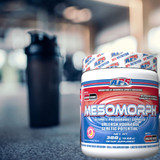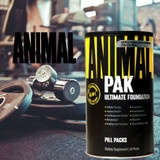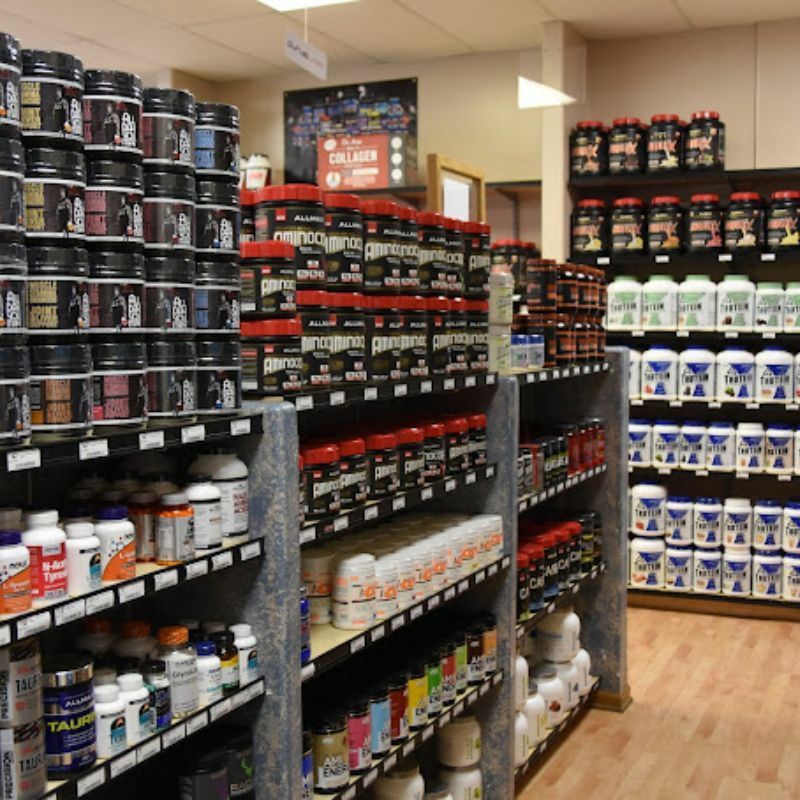CREATINE MONOHYDRATE | EFFECTS, SIDE EFFECTS, DANGERS, MYTHS & BENEFITS
Video Transcription:
John:
Hello again, everybody. This is John and Glenn with bestpricenutrition.com. Today, we're going to cover creatine, specifically some of the myths about it. You know? Not only the facts, but side effects, as you know, you'll hear... Which is more of a marketing term. It's actually an effect. Right? You know? Side effect just means effects that the company doesn't intend or whatever.
Glenn:
Yeah. Exactly.
John:
Well anyways, with creatine there's a lot of rumors out there and things like that which have been unfounded. Creatine's been on the market since 1992?
Glenn:
Yeah.
John:
Yeah. Since '92. So it's one of the longest-running supplements into this day, I think. Evidence shows it's the most effective performance-enhancing supplement there is.
Glenn:
Yeah. It's probably the most studied supplement there is.
John:
Yeah, it definitely is. Yeah.
Glenn:
I mean, they've gone further than just studying it for its athletic benefits. I mean, now they're looking into other areas.
John:
For the brain.
Glenn:
The brain. Mm-hmm (affirmative).
John:
Well, I mean creatine, you can get it from... You want to just go over some of the sources?
Glenn:
It's in beef, steak, any red meats I know it's contained in.
John:
Uh-huh (affirmative). Salmon.
Glenn:
Oh yeah. It's in salmon also. It's found in meat essentially.
John:
Yeah. And also your body produces it.
Glenn:
Yes.
John:
It's produced in the liver, the kidneys, and the pancreas. So it's endogenous. So sometimes people say, "Oh. If I take creatine, I better get off of it because I'm going to stop producing it." Well, you get it from exogenous sources and you produce it, so it's not a concern.
Glenn:
No.
John:
It's not like taking testosterone where your...
Glenn:
Yeah. You're not going to shut down your creatine production at all. I mean, it's always going to be there.
John:
Do you want to give a brief summary of how creatine works?
Glenn:
Yeah. Essentially, you have your natural source of energy in the body called ATP, which is adenosine triphosphate. And what creatine does is it... You also, excuse me, you also have ADP in the body, which is adenosine diphosphate. Creatine lends a phosphate group to that adenosine diphosphate and you get ATP, adenosine triphosphate, which is your energy source and stored energy source in the body. So that's where creatine is beneficial. It helps you with energy, providing energy, but it's not... A lot of times you say, "Hey, it helps with energy." People think, "Oh, is it like a caffeine jittery type energy?" It's not. It's not something that you're really going to get a big rush of kind of feeling from.
John:
Yeah. And it's something so your body can recycle the energy within the muscle. Because you know, as your body breaks down ATP it becomes ADP, and then the separate phosphate and creatine can help restore it. And it's a really, really quick reaction. And like you said, it's not something you feel right away.
Glenn:
No.
John:
It's something that has you get has a saturate in your system. That's where the whole loading thing became in vogue. And it turns out not to be... You don't have to load.
Glenn:
You have to load. A lot of the research done at the beginning, all they knew was loading because they knew it had to be saturated. But now, they're finding that you don't have to load it. You may not get the big boost of effects right away, but the effects at the end of the eight weeks are just the same whether or not you load or not. Or I should say 8 to 12 weeks, whether or not you load or not.
John:
Yeah. And it's... You know? With creatine, it's going to work. We were talking about before. It's a very fast energy system. It's not going to work with the aerobic system for instance. It's going to with the glycolytic and anaerobic systems. It's specifically for fast-twitch muscle fibers. So if you're going to take it and run a marathon or something distance, it's really not going to do for you.
Glenn:
No. Not going to be much better.
John:
You know? It might help you recover for your... That's not to say if you're training for marathons you shouldn't use creatine or anything, but you can use it for like your sprint workouts and lifts in the gym.
Glenn:
Exactly.
John:
That's where you're really going to feel the effects of creatine. Because as we said, it's going to work on those fast systems. So if you're running off a hundred meter sprint or any explosive, like lifting-
Glenn:
Power lifting. Things like that.
John:
That's where you're going to feel the benefits from creatine. And to put it in context too, we talked about red meat being a source. It's about two pounds of red meat is going to give you about five grams of creatine. So that's to put that in context. Forms a creatine.
Glenn:
Yeah. You know? Essentially, creatine starts off as the base creatine phosphate, and then they bonded to different salts to sort of help it absorb or be more bioavailable to the body. Creatine monohydrate is probably the most well-known, the most studied form of creatine. There's a creatine... I've seen creatine magnesium... Magnesium creatine...
John:
Chelate?
Glenn:
Chelate. That's what I'm looking for. Sorry.
John:
Okay. [crosstalk 00:04:13]. I didn't know where you were going with it.
Glenn:
Yeah. There's so many different forms of creatine that they all get kind of mixed together. There's a creatine ethyl ester, Kre-Alkalyn creatine. Those are some other sources, other forms of creatine.
John:
Mm-hmm (affirmative).
Glenn:
And again, it's just things bonded to the creatine to help it to either be stabilized or be absorbed by the body. And essentially, as it all boils down, creatine monohydrate is the one that as they've done peer reviewed research that shows that it's the best form or the far superior form than anything.
John:
There's nothing wrong with creatine monohydrate. It works, it absorbs well, it's cheap. That's the one, yeah, I mean, you should go with. And again, we touched on the energy systems. I think I misspoke. It's going to work with the phosphagen system, which is a really, really short burst. I know. I have like a little chart here that we put together. This is available on our blog. There's a blog that we did back last year, Creatine and Beta Alanine: A Match Made in Heaven. And we discussed like a five yard sprint, like when creatine or beta alanine are helpful.
John:
So this particular article is about creatine and beta alanine, but we go in depth about creatine and we talk about what energy systems you're using. You know? You're using the phosphagen when you're using 100% powered output because you need that energy available right away. A hundred meter sprint, it's predominantly the phosphagen system. And then you get into like 60%, you're having like a 200-meter sprint where you're using predominantly the glycolytic systems, you're using glycolysis, but you're also starting to get on that edge of where it might become somewhat aerobic. You know? Kind of like that 400-meter run is really kind of the threshold sometimes you'll see because the other rate limiting factor with fast-twitch muscle fibers is the buildup of lactic acid. If you've seen our other videos, we'll talk about beta alanine and get into that.
John:
And that's kind of the new supplement that's kind of with creatine in terms of a lot of research validating how effective it is. And they work together well, so if you want to read more on that, we have that in that particular blog. The biggest thing with creatine's come out with some of the myths now is that people would go and they get blood work done and they hear about their creatinine levels.
Glenn:
Mm-hmm (affirmative).
John:
Well, the by-product of creatine is...
Glenn:
Creatinine.
John:
So if you're on more creatine, well, your creatinine levels are going to be-
Glenn:
It's going to be higher.
John:
Yup.
Glenn:
Exactly. You know? If you're going to go get a test done, obviously know that your creatinine levels are going to be higher because this is getting broken down and the by-product is creatinine.
John:
And the thing is, what they never failed... When they failed the test initially was, they would look at blood and they'd say, "Oh, wow. Look at all that creatinine." They never tested the urine. Well, they went ahead and tested urine and found the expected amount in the urine, which showed that the kidneys were processing it profitably.
Glenn:
Exactly.
John:
That that was the big, big concern initially that came out with creatine. "Oh, it's going to liquefy your kidneys." If you don't have any prior kidney conditions, then you'll be fine. You can get your... You know? You can do a standard test for kidney function. It's the GFR, glomerular filtration rate, is what they're going to look at and see, and make sure that your body is getting rid of the creatinine fine. So if you don't have any kidney issues, there's no concern. And like I said, [inaudible 00:07:01] been out since '92, '93, give or take a year.
Glenn:
Yeah. Creatine is a large molecule. So yes, it does have to pass through the liver and kidneys. And people say, "Oh, it's too much stress in the kidneys." If, like John was saying, if you don't have any pre-existing kidney conditions, you're okay.
John:
It was the same with high protein diets, the thought was.
Glenn:
Yes.
John:
I mean, there's absolutely zero, zero empirical evidence to show that. And as you said, even the AMA has discussed creatine and the effects of it on mental focus and abilities to study better and think sharper.
Glenn:
The brain and studies for Alzheimer's, MS now. Yeah.
John:
So they're really starting to really research it and see where else it can help benefit. I think I read somewhere, like in the 2000 Olympic games, that almost every athlete, a high percentage of the athletes were on it, especially those that were in that sprint-type competition. So there was no issues with that either. So the creatine's kind of become a victim of its own hype and popularity. Because it's such a good supplement, everyone tries to come out, like you were talking about, all the different things.
Glenn:
Yeah. Yeah. They kind of all get meshed together because essentially [crosstalk 00:08:00].
John:
Our's won't bloat you, and this and that, which is-
Glenn:
Yeah. They won't bloat, no holding water. And sort of the idea behind that was you would take a creatine with a large amount of carbohydrates to get that insulin spike, and then that insulin would shuttle the creatine into the muscle cells.
John:
Four times a day.
Glenn:
Yeah.
John:
People are sucking down Cell-Tech or...
Glenn:
Oh. If you imagine 75 grams of sugar four times a day, that's what? 290 grams of sugar.
John:
Oh, that'll bloat you because of the sugar.
Glenn:
Right.
John:
So that was the problem. People are all, "I'm sucking..." Well, that's all the sugar. It's not like, "Oh, the creatine's doing..." And also, you need the water that you retain inside of the muscle cell for creatine to be effective. That causes intracellular tension, and that water draws everything into the cell, which is what you want. It kind of causes an anabolic effect. I mean, that's part of the idea. So the notion that, "Our creatine doesn't bloat you," it can be summed up as there's probably not any sugar in there. It has nothing to do with the form of creatine. And if yours isn't helping you hold that water in the muscle cell, well then it's not doing its job. It's just nonsense.
Glenn:
Yeah. A lot of times we'll get it emails Or phone calls from customers saying, "Hey, I'm dieting. What should I take?" And a lot of times creatine is something that's good to take while dieting also because it can help you preserve that muscle mass, keep your energy levels high, and again, like John was saying, it's not something that can bloat you. It's that 75 grams of sugar that you take along with that. So that's always something to monitor.
John:
Yeah. That's marketing, some of the... Yeah. The "Our creatine and won't do this and ours will do that. And no loading phase." And we covered the loading phase. We covered the notion of bloating. I mean, that's a sugar thing. I mean, that's mainly it.
Glenn:
Yeah.
John:
I'm trying to think if we have any other questions on it.
Glenn:
Yeah. I can't-
John:
There's so much we can do. I mean, there's so many peer reviewed studies on creatine that it's just... Yeah.
Glenn:
Yeah. As it boils down to it, it's one of the safest supplements. I mean, generally like John was saying, only if you have a pre-existing kidney condition would you not want to take it or-
John:
Yeah. There's a lot of things that you shouldn't take if you have a preexisting kidney condition that you probably have to monitor how much protein you take. I mean, everything. So that's different. If you're of complete health, there's no issue. And if somebody is out there on some goofy websites saying that "Creatine's liquefying and kidneys and stuff," okay, I'm sure because that's in the best interest of these companies; to liquefy your kidneys because then you'll return and buy more. That's great. And as we said, there's plenty of research. Human research. And that's that.
John:
So if you guys have any questions or comments, you can find us on Facebook. We're on Facebook now. Facebook.com/bestpricenutrition. You could also post your comments in the comments section of the video or on our blog. And again, the blog that we referred to in this video is called Creatine and Beta Alanine: A Match Made in Heaven. And that's a bestpricenutrition.com/blog. Thank you.
Glenn:
Thank you.
†The content of this blog post is intended solely for reference and entertainment purposes. We do not offer medical advice or specific guidance regarding the products discussed. Our insights are based on a combination of anecdotal experiences, online studies/reviews, manufacturer details, and customer feedback. While we strive to present accurate and current information, we cannot assure its completeness or its alignment with the most recent product formulations or data. For any concerns or up-to-date information, we recommend visiting the manufacturer's website directly. The opinions and information provided here do not necessarily reflect the views of Best Price Nutrition; they represent the perspectives and information from the manufacturers and users. Furthermore, these statements have not been evaluated by the Food and Drug Administration. The products mentioned are not intended to diagnose, treat, cure, or prevent any disease or illness.
Recent Posts
-
Everything You Wanted to Know About Mesomorph Preworkout
WHAT IS MESOMORPH PRE-WORKOUT? Mesomorph is Top Selling Preworkout Supplement which is ma
-
Universal Animal Pak 101
Universal Animal Pak 101 This is one of our most popular vitamins for bodybuilders. It's
-
5 Supplements to Help Relieve Back Pumps
Here at BestPriceNutrition.Com one of our hottest selling product categories right up there with







